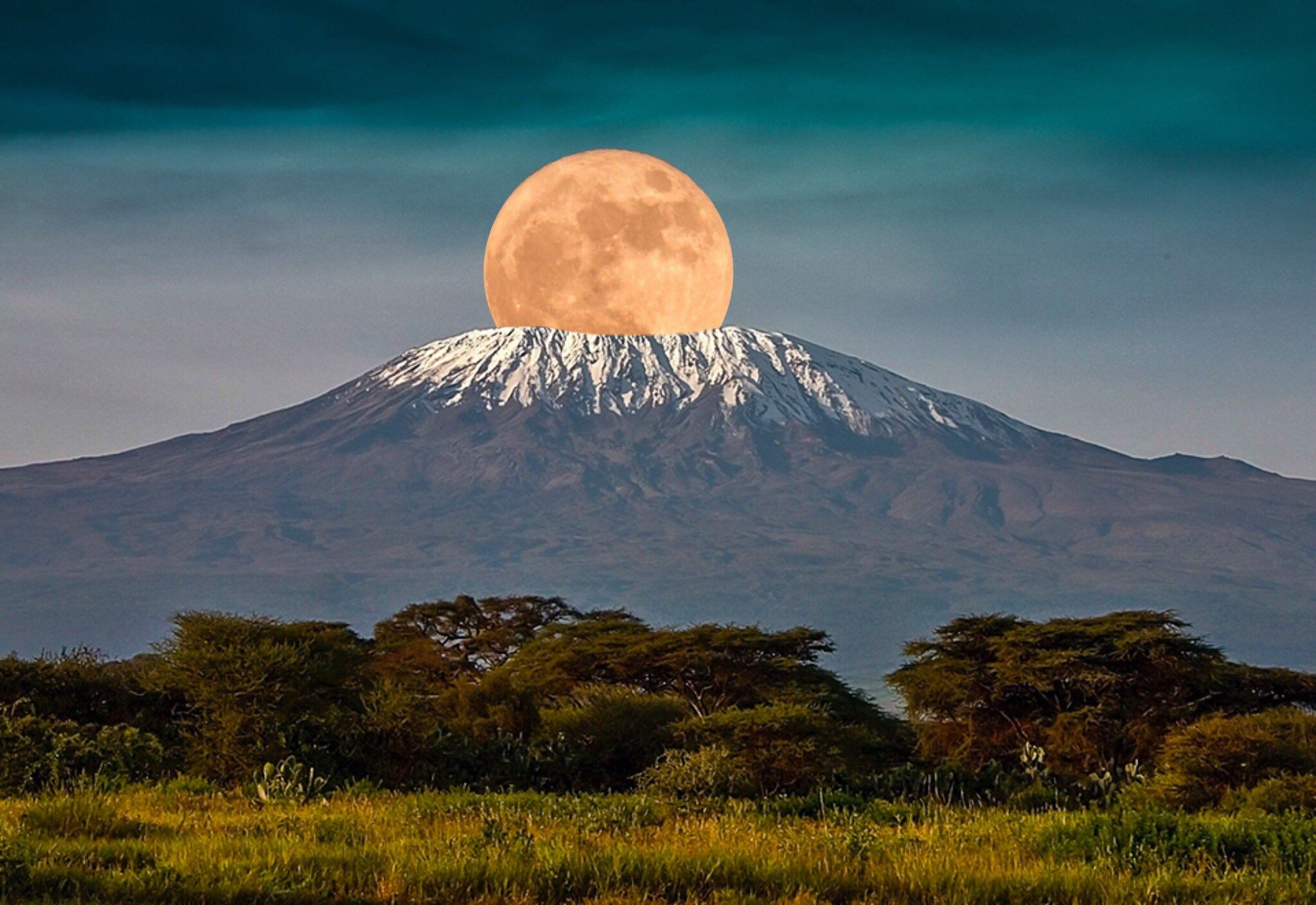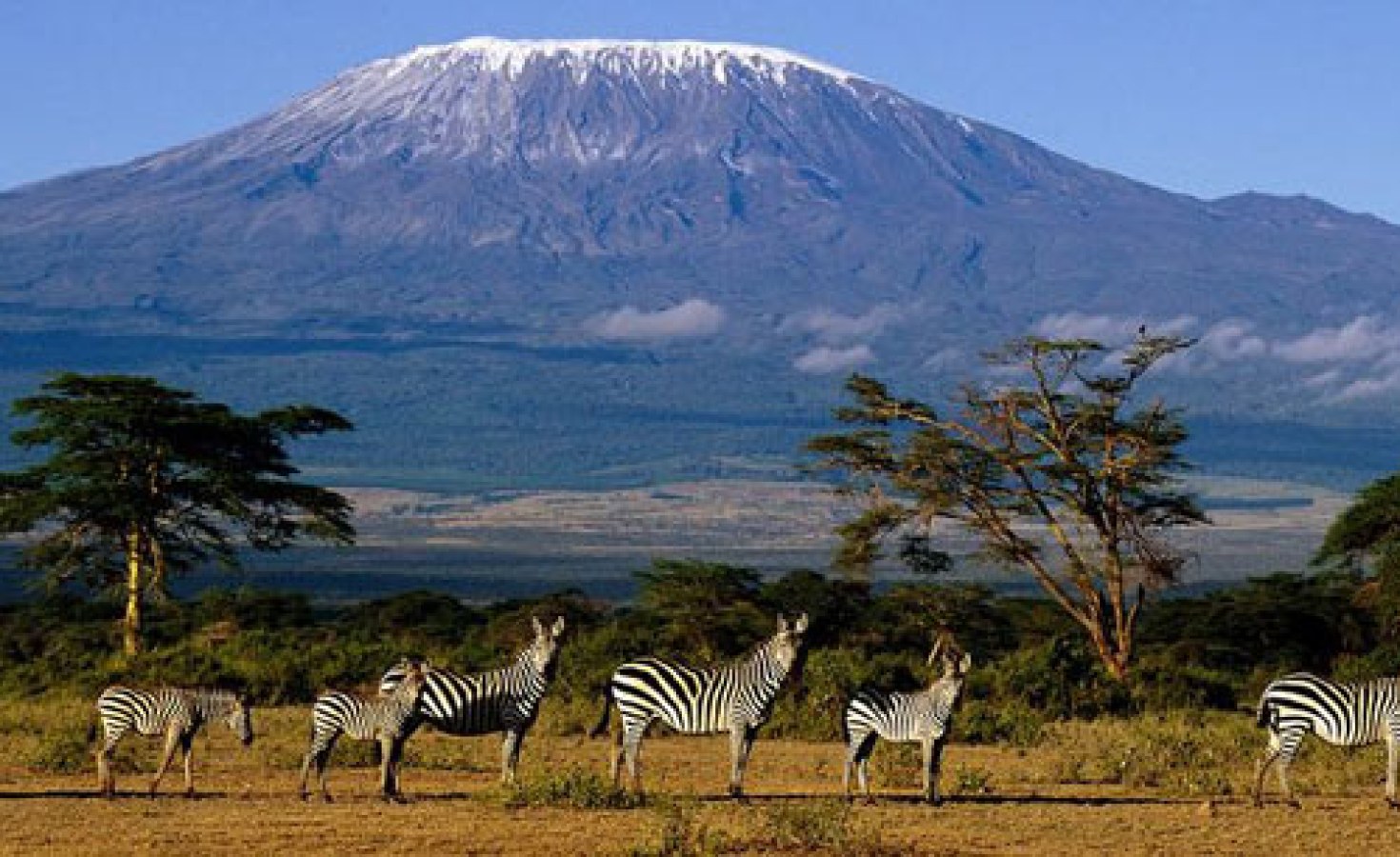Ecotourism in Tanzania offers a harmonious blend of environmental preservation, economic empowerment, and cultural immersion. Embark on an exploration of this captivating destination, where nature’s wonders coexist with thriving communities and vibrant traditions.
As we delve into the intricacies of ecotourism in Tanzania, we uncover its multifaceted benefits, ranging from safeguarding biodiversity to fostering sustainable livelihoods. Prepare to be inspired by the transformative power of responsible tourism that enriches both the environment and local communities.
Environmental Impact of Ecotourism
Ecotourism in Tanzania offers significant environmental benefits, contributing to the preservation and protection of the country’s diverse ecosystems and wildlife.Ecotourism practices prioritize minimizing environmental damage by adopting sustainable approaches. For instance, ecotourism lodges and camps are often designed to blend seamlessly with the natural surroundings, using eco-friendly materials and energy-efficient technologies.
Additionally, ecotourism operators adhere to strict guidelines to ensure minimal disturbance to wildlife and their habitats.
Role in Preserving Biodiversity and Natural Habitats
Ecotourism plays a crucial role in preserving biodiversity and natural habitats in Tanzania. By generating revenue through sustainable tourism practices, ecotourism provides incentives for local communities to protect and manage their natural resources. This, in turn, supports the conservation of critical ecosystems, such as the Serengeti National Park and the Ngorongoro Conservation Area, which are home to an abundance of wildlife and diverse plant species.
Economic Benefits of Ecotourism
Ecotourism brings substantial economic benefits to local communities in Tanzania. It creates jobs, supports sustainable livelihoods, and promotes economic development in rural areas.Ecotourism creates employment opportunities for local people as tour guides, lodge staff, and conservationists. These jobs provide income and improve the standard of living for families.
Additionally, ecotourism supports local businesses such as craft shops, restaurants, and transportation services. By purchasing goods and services from these businesses, tourists contribute to the local economy.Ecotourism also plays a vital role in promoting economic development in rural areas. It attracts visitors to remote and underdeveloped regions, bringing in revenue that can be used to invest in infrastructure, education, and healthcare.
This investment can lead to long-term economic growth and improved quality of life for local communities.
Job Creation
Ecotourism creates jobs in various sectors, including:
- Tour guiding
- Accommodation and hospitality
- Conservation and wildlife management
- Craft and souvenir production
- Transportation and logistics
These jobs provide income and support sustainable livelihoods for local communities.
Understand how the union of how is ecotourism sustainable can improve efficiency and productivity.
Support for Local Businesses
Ecotourism supports local businesses by:
- Encouraging tourists to purchase goods and services from local shops, restaurants, and transportation providers
- Promoting the sale of locally made crafts and souvenirs
- Creating opportunities for local entrepreneurs to establish tourism-related businesses
This support helps to diversify the local economy and create additional income streams for communities.
Promotion of Economic Development in Rural Areas
Ecotourism attracts visitors to remote and underdeveloped regions, bringing in revenue that can be used to invest in:
- Infrastructure development, such as roads, bridges, and schools
- Education and training programs for local communities
- Healthcare facilities and services
- Conservation and environmental protection initiatives
These investments contribute to long-term economic growth and improved quality of life for local communities.
Social and Cultural Impacts of Ecotourism
Ecotourism can have significant positive social and cultural impacts on local communities in Tanzania. It can empower communities by providing them with economic opportunities, such as jobs in tourism-related businesses or the sale of handicrafts. This can help to reduce poverty and improve living standards.
Enhance your insight with the methods and methods of ecotourism in zimbabwe.
Ecotourism can also help to preserve cultural heritage by promoting traditional crafts and customs and by encouraging visitors to learn about and respect local cultures.
Empowerment of Local Communities
One of the most important social impacts of ecotourism is that it can empower local communities. By providing economic opportunities, ecotourism can help to reduce poverty and improve living standards. This can lead to a number of positive social outcomes, such as improved health and education, and increased participation in decision-making.
Obtain direct knowledge about the efficiency of aims and objectives of ecotourism through case studies.
Preservation of Cultural Heritage
Ecotourism can also help to preserve cultural heritage. By promoting traditional crafts and customs, ecotourism can help to keep these traditions alive. It can also encourage visitors to learn about and respect local cultures, which can help to foster understanding and tolerance.
Importance of Respecting Local Customs and Traditions
It is important for ecotourism operators to respect local customs and traditions. This includes dressing appropriately, behaving respectfully, and avoiding activities that could be offensive to local people. By respecting local cultures, ecotourism operators can help to create a positive and sustainable relationship between visitors and the local community.
Challenges and Opportunities in Ecotourism
Ecotourism in Tanzania, while offering significant benefits, faces several challenges and presents emerging opportunities. Understanding these aspects is crucial for sustainable development and the industry’s long-term success.
Expand your understanding about who are ecotourists with the sources we offer.
Challenges in Ecotourism, Ecotourism in tanzania
Ecotourism operators in Tanzania encounter various challenges that hinder their operations and impact the overall sustainability of the industry. These include:
- Inadequate Infrastructure:Limited infrastructure, such as roads, transportation, and communication networks, poses challenges for reaching remote ecotourism destinations and providing necessary amenities for visitors.
- Lack of Funding:Financial constraints often hinder ecotourism operators from implementing sustainable practices, investing in infrastructure, and promoting their businesses effectively.
- Limited Training and Capacity Building:Insufficient training and capacity building opportunities for local communities and ecotourism staff can lead to poor service delivery and a lack of understanding of sustainable practices.
- Overtourism:In some popular ecotourism destinations, excessive visitor numbers can strain resources, damage ecosystems, and disrupt local communities.
- Political Instability:Political instability and security concerns in certain regions can deter tourists and create challenges for ecotourism operations.
Solutions and Best Practices
Addressing the challenges faced by ecotourism operators requires a multi-faceted approach. Solutions and best practices include:
- Infrastructure Development:Investing in infrastructure development, including roads, transportation, and communication networks, improves accessibility and enhances the visitor experience.
- Financial Support:Providing financial assistance to ecotourism operators through grants, loans, and other incentives encourages sustainable practices and promotes industry growth.
- Training and Capacity Building:Implementing comprehensive training programs for local communities and ecotourism staff ensures the provision of high-quality services and the adoption of sustainable practices.
- Tourism Management:Implementing effective tourism management strategies, such as visitor quotas and responsible tourism guidelines, helps mitigate overtourism and preserve ecosystems.
- Collaboration and Partnerships:Fostering collaboration between ecotourism operators, local communities, and government agencies ensures a coordinated approach to sustainable tourism development.
Emerging Opportunities
Despite the challenges, ecotourism in Tanzania presents several emerging opportunities for growth and development:
- Untapped Destinations:Exploring and developing ecotourism opportunities in less-visited regions offers the potential for new revenue streams and the diversification of the industry.
- Community-Based Tourism:Promoting community-based tourism initiatives empowers local communities, ensures the equitable distribution of benefits, and preserves cultural heritage.
- Sustainable Practices:Adopting innovative sustainable practices, such as renewable energy and waste management, enhances the environmental integrity of ecotourism destinations.
- Technological Advancements:Utilizing technological advancements, such as mobile applications and online booking platforms, improves the accessibility and promotion of ecotourism experiences.
- Tourism Certification:Obtaining tourism certifications, such as Green Globe or Rainforest Alliance, demonstrates a commitment to sustainability and attracts eco-conscious travelers.
Best Practices for Sustainable Ecotourism: Ecotourism In Tanzania
Sustainable ecotourism practices in Tanzania are essential to ensure the preservation of the country’s natural and cultural heritage while also providing economic benefits to local communities. To achieve this, a comprehensive approach that encompasses environmental conservation, economic sustainability, social responsibility, and cultural preservation is necessary.
The following table provides guidelines for sustainable ecotourism practices in Tanzania, with specific examples of how to implement these guidelines:
Environmental Conservation
- Minimize waste by using reusable materials, recycling, and composting.
- Conserve water and energy by using efficient appliances and fixtures.
- Protect wildlife by observing wildlife from a distance and avoiding feeding or touching animals.
- Respect the natural environment by staying on designated trails and avoiding littering.
Economic Benefits
- Support local businesses by purchasing goods and services from local vendors.
- Create employment opportunities for local people by hiring local guides and staff.
- Invest in infrastructure and community development projects to improve the quality of life for local residents.
- Promote fair trade practices to ensure that local communities receive a fair share of the benefits from tourism.
Social Responsibility
- Respect local customs and traditions.
- Support local schools and healthcare facilities.
- Volunteer in local communities to give back and make a positive impact.
- Promote cultural exchange and understanding between tourists and local people.
Cultural Preservation
- Visit historical and cultural sites with respect and avoid touching or damaging artifacts.
- Learn about local history and culture from local guides and experts.
- Support traditional arts and crafts by purchasing souvenirs from local artisans.
- Promote cultural diversity and tolerance by interacting with people from different backgrounds.
Last Point
Ecotourism in Tanzania stands as a testament to the harmonious coexistence of conservation, economic prosperity, and cultural preservation. By embracing sustainable practices and respecting local customs, we can ensure that future generations continue to experience the wonders of Tanzania’s natural and cultural heritage.
Frequently Asked Questions
What are the key environmental benefits of ecotourism in Tanzania?
Ecotourism promotes the preservation of biodiversity, protects natural habitats, and raises awareness about environmental conservation.
How does ecotourism contribute to local economies in Tanzania?
Ecotourism creates jobs, supports sustainable livelihoods, and promotes economic development in rural areas.
What are some examples of ecotourism practices that minimize environmental damage in Tanzania?
Using renewable energy sources, implementing waste management systems, and employing sustainable construction techniques are all examples of ecotourism practices that minimize environmental damage.


:max_bytes(150000):strip_icc()/safari-688459312-5c26e0bec9e77c000146607d.jpg)
